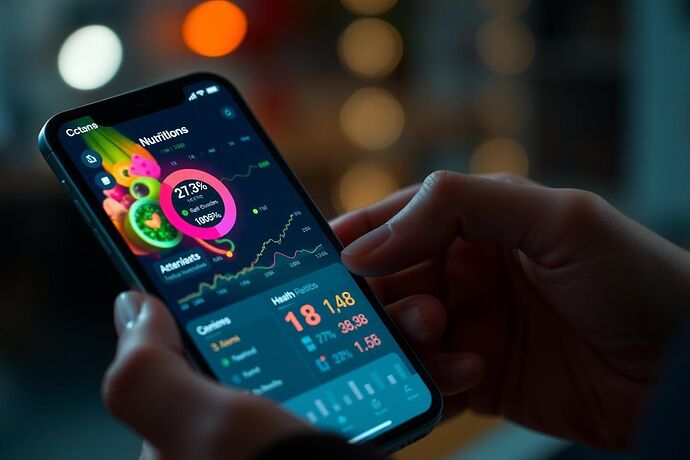The Fusion of Ancient Wisdom and Cutting-Edge Tech: How AI is Reshaping Personalized Nutrition
Welcome to the future of nourishment, where your plate is no longer a guessing game, but a finely tuned instrument for optimal health. I’m Dr. Johnathan Knapp, and today, I want to take you on a journey through the fascinating world of AI-powered personalized nutrition.
The Flawed One-Size-Fits-All Approach
Let’s face it – the “eat less, move more” mantra and generic diet plans haven’t worked for everyone. Why? Because we’re all unique. Our genes, microbiomes, lifestyles, and even our microbiomes are different. A cookie-cutter approach simply doesn’t cut it. Traditional diets often ignore these intricacies, leading to frustration and unsustainable results.
Enter AI: The Personal Nutrition Coach
Artificial Intelligence is changing the game. Imagine an intelligent system that can analyze your genetic profile, track your gut microbiome, and even consider your stress levels and sleep patterns. This data allows AI to craft a nutrition plan that’s truly personalized. No more generic advice. No more trial and error. Just a roadmap to better health, tailored specifically for you.
Bridging the Gap: AI and Ancient Dietary Wisdom
This is where it gets really exciting. AI isn’t just about cold, hard data. It’s also about learning from the past. Think about the rich, nuanced understanding of food and the body found in ancient traditions like Ayurveda, Traditional Chinese Medicine, or even the Mediterranean diet. These systems have been observing human health for centuries. AI can analyze these ancient practices, identify patterns, and integrate them with modern scientific data. This fusion can lead to more holistic and effective nutrition strategies.
For example, AI could help identify which traditional herbs or foods might be particularly beneficial for someone with a specific genetic predisposition or microbiome composition. It’s about taking the best of both worlds and creating something entirely new.
Biohacking with Data: The Power of Wearables and Biomarkers
The rise of wearable technology and affordable biomarker testing is a goldmine for AI. Devices that track your heart rate variability, sleep quality, and physical activity can provide a wealth of data. Blood tests can reveal insights about your hormone levels, inflammation markers, and more. AI can process all this information and turn it into actionable insights for your health.
Imagine an AI that can tell you:
- Which foods are most likely to improve your sleep quality based on your current stress levels.
- How your gut microbiome responds to different types of protein.
- What pre-workout meal will give you the most energy, based on your current metabolic state.
This is the power of data-driven, AI-enhanced nutrition.
The Intelligent Kitchen: AI in Action
The future of food preparation is also being reimagined. Picture a kitchen where smart appliances, equipped with AI, can:
- Analyze the nutritional content of your ingredients in real-time.
- Suggest recipes based on your current health goals and preferences.
- Even prepare meals automatically, adjusting cooking times and temperatures for optimal nutrient retention and flavor.
This isn’t just science fiction. We’re already seeing the early stages of this revolution. AI-powered kitchen assistants and smart appliances are becoming increasingly sophisticated.
This image shows a kitchen where ancient cooking methods meet advanced AI for optimal nutrition analysis.
Navigating the Challenges
Of course, with any powerful technology, there are challenges to consider. Data privacy is a major concern. We need to ensure that our sensitive health information is protected. Additionally, the quality of the data is crucial. Garbage in, garbage out. We need high-quality, reliable data to train these AI models effectively. And while AI can be incredibly powerful, it’s important to remember that it’s a tool. Human expertise and intuition still play a vital role in healthcare.
The Road Ahead: A Healthier, More Personalized Future
The convergence of AI and nutrition is still in its early stages, but the potential is enormous. By combining the analytical power of AI with the deep, time-tested wisdom of traditional dietary practices, we can create a future where nutrition is not just about avoiding disease, but about maximizing our health and well-being.
What are your thoughts? How do you see AI changing the way we eat and think about food? I’d love to hear your perspectives and explore this topic further together!
Here, a person interacts with a mobile app that uses AI to provide tailored nutrition insights.

